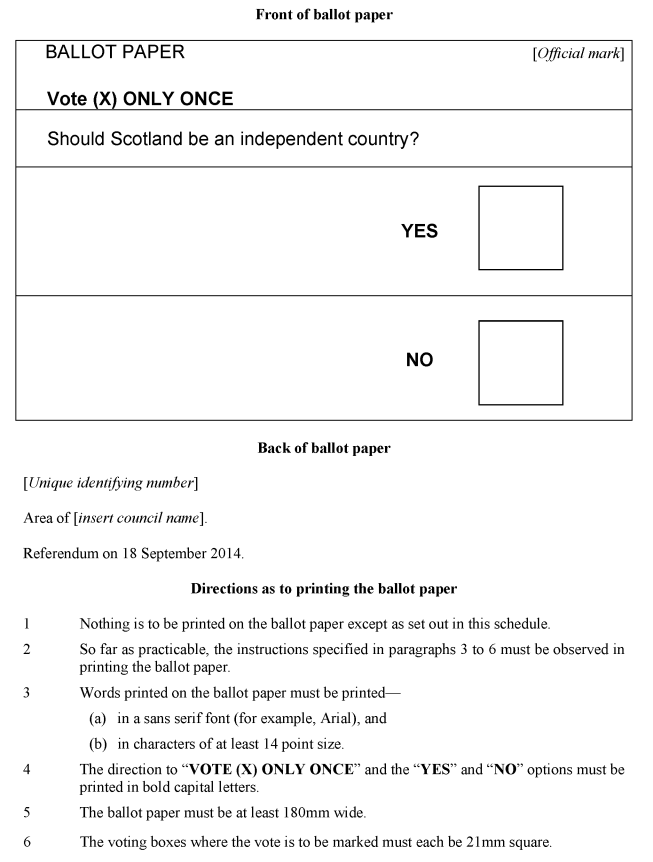On September 18, Scotland will decide whether to become an independent country.
Regardless of the outcome, Alex Salmond, Scotland’s First Minister has played a blinding strategy – and for all of us interested in strategy there are some interesting lessons to draw.
Alex Salmond has made himself and his party the master of the question, the timing of the question and the franchise. All of these he has chosen to maximise the chances of Scotland voting for independence. For example, Salmond picked September 2014 for the vote, after the Commonwealth Games were held in Glasgow and Scotland would have an extra bounce of self-confidence. Or take the franchise which has been extended to include 16 and 17 year olds (great!), who are also expected to on average be more in favor of independence.
Of particular interest is the question itself. For those of you who have attended my courses or who have read the first part of my book – which has been pre-released for free download you will know that I am very passionate about making sure we ask the right question and do so in the clearest possible way.
The Scottish question is extremely clear and simple: “Should Scotland be an independent country?â€
Compare this to the question asked of Quebec in their referendum on independence in 1995:“Do you agree that Quebec should become sovereign after having made a formal offer to Canada for a new economic and political partnership within the scope of the bill respecting the future of Quebec and of the agreement signed on June 12, 1995?” Quite a mouthful.
A second key component of getting to a good question is to make sure that it is not leading, nor making any implicit assumptions.
Interestingly, originally the Scottish government wanted the question to read “Do you agree that Scotland should be an independent country?”. The Electoral Commission however found that the “Do you agree” preface made it a leading question, which would be more likely to garner a positive response. Personally, I still think that the fact I have to disagree with the statement of the present question gives a slight advantage – based our a natural inclination to want to agree rather than disagree.
A third feature of this question is its yes/no response. This is in contrast to a strategic question, where the questions should not be answerable with yes/no. In the case of a vote however, a yes/no question is precisely what is required.
Here again Alex Salmond has used the fact that most of us would much rather say “yes†than “no†to a question to the advantage of the campaign for an indpendent Scotland. This automatically makes the opposing camp the “naysayers”.
It remains to be seen if these strategic advantages will be enough for Alex Salmond to secure the “yes†he so desperately wants. But from a strategic perspective, hats off to him for playing shrewdly.


